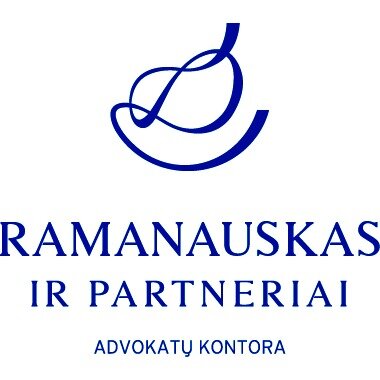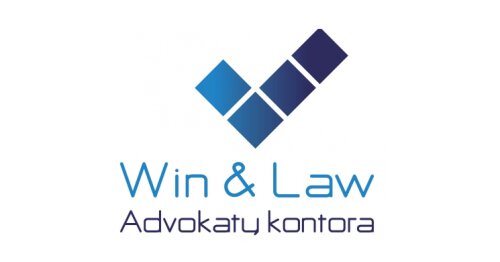Best Admiralty & Maritime Lawyers in Klaipėda
Share your needs with us, get contacted by law firms.
Free. Takes 2 min.
List of the best lawyers in Klaipėda, Republic of Lithuania
About Admiralty & Maritime Law in Klaipėda, Republic of Lithuania
Klaipėda serves as Lithuania's main seaport, making it a critical hub for maritime activity in the region. Admiralty and maritime law in Klaipėda addresses the legal frameworks governing navigation, shipping, marine trade, environmental regulations, and the usage of ports and waterways. This area of law is highly specialized and encompasses a wide range of issues, including vessel ownership and registration, marine insurance, seafarers' rights, cargo claims, and maritime incidents. Given Klaipėda's strategic position on the Baltic Sea, understanding Lithuanian maritime law and international treaties is essential for both individuals and businesses operating in or with the port.
Why You May Need a Lawyer
Legal assistance in admiralty and maritime matters can be crucial for several reasons. Common situations where you may require expert guidance include:
- Disputes over shipping contracts, carriage of goods, or cargo damage
- Accidents at sea, including collisions, salvage, or environmental pollution claims
- Issues related to vessel ownership, purchase, or financing
- Detention of vessels by port authorities or customs
- Enforcement of maritime liens or mortgages
- Employment disputes involving seafarers, wages, or working conditions
- Compliance with Lithuanian and international maritime safety and environmental regulations
- Insurance claims arising from maritime incidents
- Litigation or arbitration involving maritime commercial transactions
A specialized lawyer can help navigate the complexities of both local and international maritime law, ensuring your rights and interests are protected.
Local Laws Overview
Maritime activity in Klaipėda is primarily governed by the Lithuanian Maritime Code, which incorporates both national legislation and aspects of international treaties such as those from the International Maritime Organization. Key areas regulated by local law include:
- Vessel registration, safety standards, and seaworthiness requirements
- Procedures for maritime accidents, investigations, and liability
- Port operations, usage fees, and regulatory oversight by Klaipėda State Seaport Authority
- Environmental protections, including rules on ballast water, pollution, and waste management
- Rights and obligations of seafarers, including labor contracts, repatriation, and welfare
- Duties and responsibilities of shipping companies and agents
- Dispute resolution, including access to Lithuanian courts for maritime claims
- Customs procedures for import, export, and transit of goods through the port
Lithuania is also party to a number of international conventions affecting maritime law, such as SOLAS, MARPOL, and others impacting shipping and navigation in Baltic waters.
Frequently Asked Questions
What is admiralty and maritime law?
Admiralty and maritime law covers legal matters related to navigation and shipping, including contracts, accidents, pollution, and the handling of goods and people at sea.
What should I do if my cargo is damaged while shipping through Klaipėda?
Document the damage, notify your shipping company and insurer immediately, and consider consulting a maritime lawyer to evaluate potential claims and remedies under Lithuanian law.
How can I register a vessel in Klaipėda?
Vessel registration is overseen by the Lithuanian Maritime Administration, requiring submission of ownership documentation, compliance with technical standards, and payment of applicable fees.
What laws regulate pollution and environmental incidents in the port?
Lithuanian environmental regulations and international conventions, like MARPOL, set strict rules for handling pollutants and waste. Violations can result in serious penalties.
Can I resolve a maritime dispute in Klaipėda without going to court?
Yes, arbitration and mediation are possible alternatives to litigation, and are often used for commercial disputes related to shipping.
What rights do seafarers have under Lithuanian law?
Seafarers are protected by labor laws regulating contracts, wages, working conditions, health, repatriation, and dispute resolution mechanisms.
What should I do if my vessel is detained by authorities?
Act quickly to understand the reason for detention, gather necessary documentation, and seek assistance from a maritime lawyer to facilitate release and minimize losses.
Are there special customs requirements for shipping goods through Klaipėda?
Yes, goods entering, leaving, or transiting the port must comply with Lithuanian customs procedures, documentation rules, and potential inspections.
Is marine insurance mandatory in Lithuania?
While not always mandatory, certain types of marine insurance, such as liability coverage for oil pollution, may be required under local or international law.
How do I find a qualified maritime lawyer in Klaipėda?
Look for lawyers with experience in admiralty law and who are familiar with Lithuanian maritime regulations, preferably those affiliated with recognized legal organizations or maritime law associations.
Additional Resources
Several local and international resources offer helpful information and support for maritime legal matters in Klaipėda:
- Klaipėda State Seaport Authority - the main regulatory body for port operations
- Lithuanian Maritime Administration - responsible for vessel registration and compliance
- Lithuanian Shipowners Association - offers industry guidance
- Lithuanian Bar Association - registry of licensed legal professionals
- Lithuanian Transport Safety Administration - oversight of safety and environmental regulations
- International Maritime Organization (IMO) - provides international standards relevant to Lithuania
Next Steps
If you need legal assistance related to admiralty and maritime matters in Klaipėda, begin by clearly identifying your issue and gathering all relevant documentation. Contact a specialized maritime lawyer who understands Lithuanian and international maritime law. If you are unsure where to start, reach out to local professional associations for a referral. Timely legal advice can help avoid complications, ensure compliance, and protect your interests whether you are a business, individual, or seafarer.
Lawzana helps you find the best lawyers and law firms in Klaipėda through a curated and pre-screened list of qualified legal professionals. Our platform offers rankings and detailed profiles of attorneys and law firms, allowing you to compare based on practice areas, including Admiralty & Maritime, experience, and client feedback.
Each profile includes a description of the firm's areas of practice, client reviews, team members and partners, year of establishment, spoken languages, office locations, contact information, social media presence, and any published articles or resources. Most firms on our platform speak English and are experienced in both local and international legal matters.
Get a quote from top-rated law firms in Klaipėda, Republic of Lithuania — quickly, securely, and without unnecessary hassle.
Disclaimer:
The information provided on this page is for general informational purposes only and does not constitute legal advice. While we strive to ensure the accuracy and relevance of the content, legal information may change over time, and interpretations of the law can vary. You should always consult with a qualified legal professional for advice specific to your situation.
We disclaim all liability for actions taken or not taken based on the content of this page. If you believe any information is incorrect or outdated, please contact us, and we will review and update it where appropriate.















